Physical Address
304 North Cardinal St.
Dorchester Center, MA 02124
Physical Address
304 North Cardinal St.
Dorchester Center, MA 02124
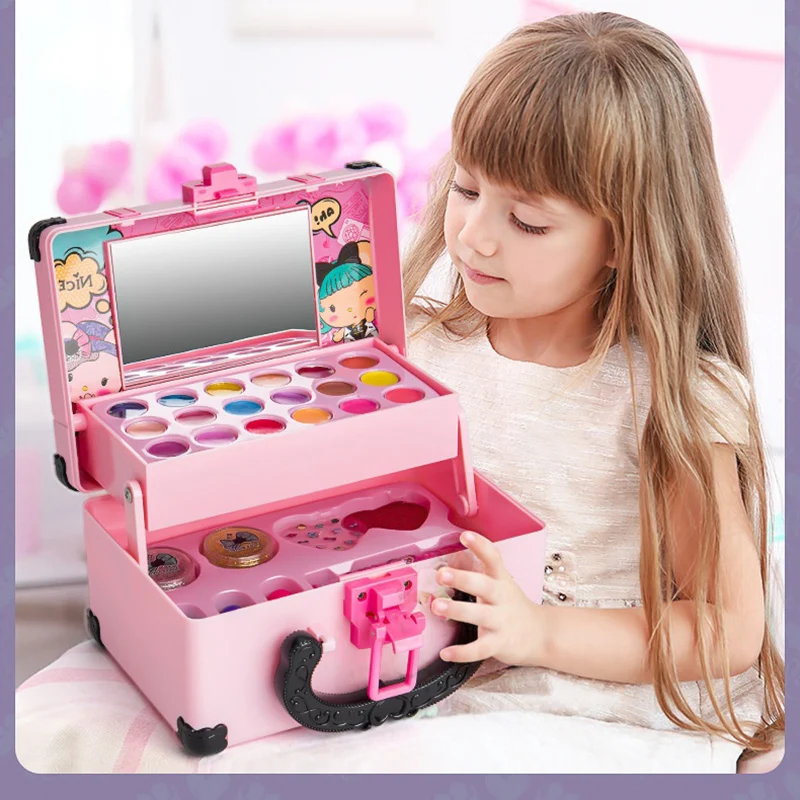
In recent years, kids makeup has emerged as a popular trend among young children and their parents. This movement is not just about enhancing appearance but also about fostering creativity, self-expression, and confidence in children. As more families embrace makeup as a fun and safe activity, it opens up numerous opportunities for children to explore their artistic talents and develop their unique identities. This comprehensive guide explores the various aspects of kids makeup, from its benefits and safety considerations to tips for introducing makeup to children and addressing parental concerns.
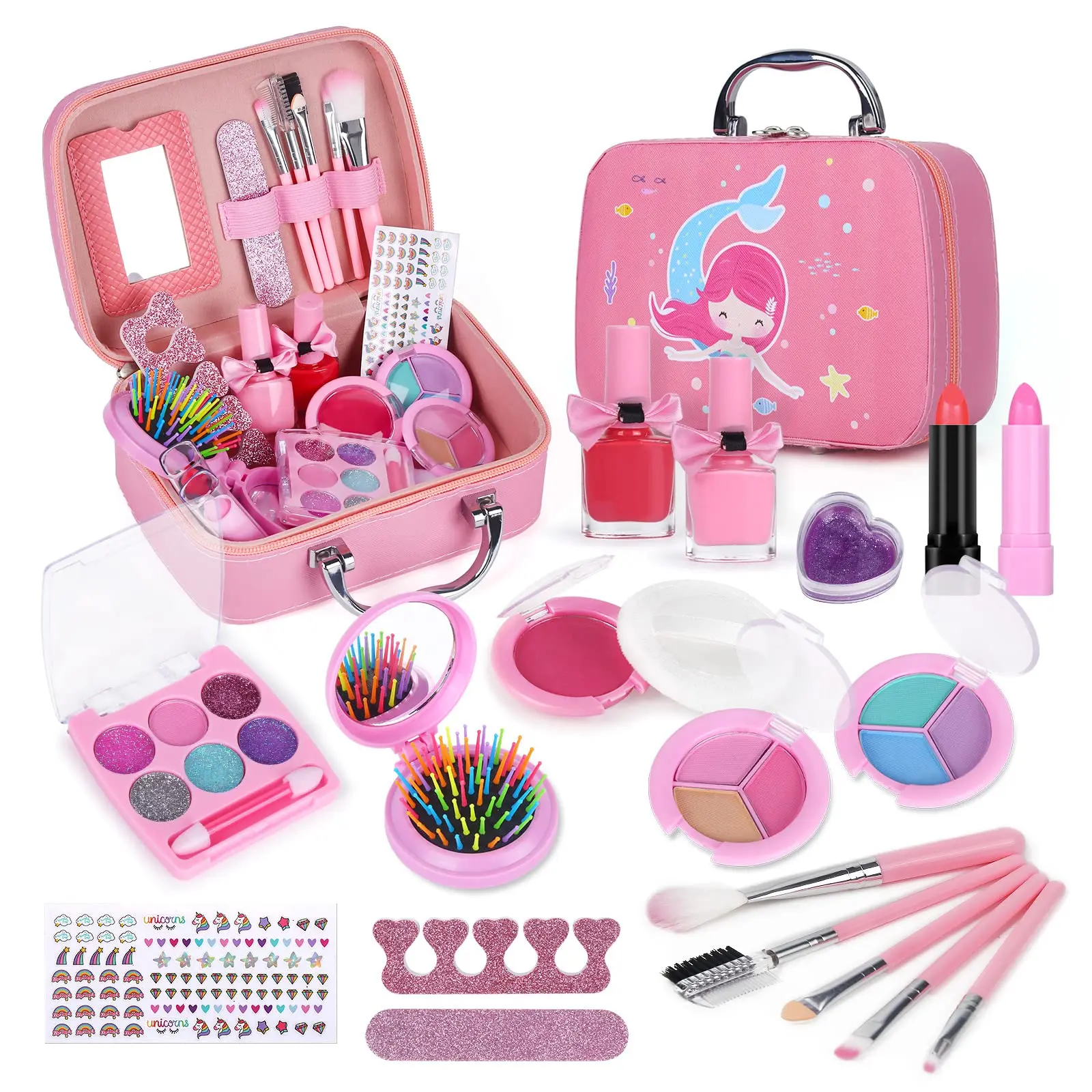 The Growing Popularity of Kids Make-up
The Growing Popularity of Kids Make-upKids makeup has seen a significant rise in popularity due to several key factors. Social media platforms have played a pivotal role, with influencers and celebrities showcasing child-friendly makeup looks that inspire young audiences. Additionally, the beauty industry has responded by developing products specifically designed for children’s sensitive skin and playful preferences. As a result, parents feel more at ease allowing their kids to experiment with makeup, viewing it as a harmless and enjoyable activity. Furthermore, makeup application becomes a creative outlet for children, similar to drawing or crafting, enabling them to express their personalities and imaginations.
Media and pop culture significantly shape the kids makeup trend. Children’s television shows, movies, and online content often feature young characters with distinct and vibrant styles, which children admire and wish to emulate. Moreover, celebrities who advocate for children’s creativity endorse the use of makeup as a form of self-expression. These influences encourage children to explore makeup as a fun and imaginative activity, fostering a sense of connection with their favorite characters and boosting their creativity.
One of the primary advantages of kids makeup is its ability to foster creativity. Makeup allows children to experiment with different colors, shapes, and designs, enhancing their artistic skills. By choosing their own looks, children learn to make decisions and express their individuality. This creative process not only nurtures their imagination but also helps them develop a sense of personal style. Consequently, kids gain confidence in their ability to create and innovate, which can extend to other areas of their lives.
Applying makeup can significantly boost a child’s confidence and self-esteem. When children create their own makeup looks, they take pride in their accomplishments and feel a sense of ownership over their appearance. Positive reinforcement from peers and family members further enhances their self-esteem, making them feel valued and appreciated. This increased confidence can translate into better social interactions and a more positive self-image, contributing to their overall emotional well-being.
Engaging in makeup activities can also enhance a child’s social skills and ability to work in a team. When children participate in makeup sessions together, they learn to share ideas, offer compliments, and collaborate on creating looks. This collaborative environment fosters communication skills and teaches children the importance of teamwork. Additionally, participating in group activities can help children build friendships and develop a sense of community.
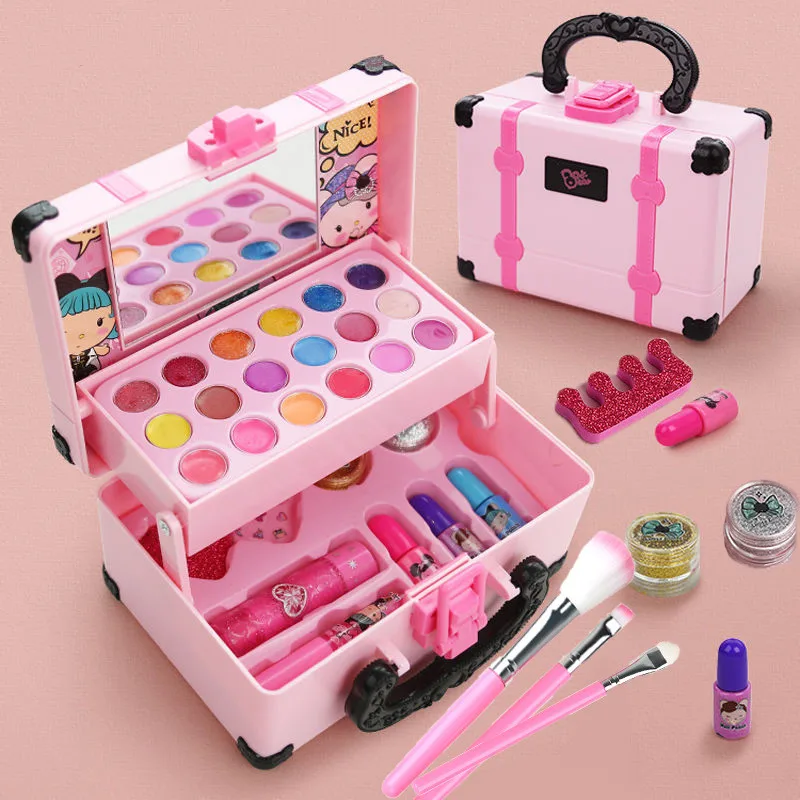 Safety Considerations for Kids Make-up
Safety Considerations for Kids Make-upSafety is a paramount concern when it comes to kids makeup. Parents must ensure that the products used are specifically formulated for children, prioritizing non-toxic and hypoallergenic ingredients. These products are designed to minimize the risk of allergic reactions and skin irritations, providing a safe environment for children to explore makeup. It is also essential to check for certifications and labels that guarantee the products meet safety standards. By selecting the right makeup, parents can confidently allow their children to enjoy makeup without compromising their health.
Proper application techniques and supervision are crucial to ensure the safe use of makeup by children. Parents should guide their children through the makeup process, teaching them how to apply products correctly and hygienically. Supervising makeup activities helps prevent accidental ingestion or eye irritation, which can occur if products are used improperly. Additionally, supervision allows parents to monitor the types of makeup being used, ensuring that only safe and appropriate products are applied. This guidance not only ensures safety but also provides an opportunity for parents to bond with their children through a shared creative activity.
Educating children on the importance of proper makeup removal and skin care is another essential aspect of kids makeup safety. Parents should teach their children how to remove makeup gently and thoroughly at the end of the day to prevent skin irritation and clogged pores. Using gentle, child-friendly cleansers and moisturizers can help maintain healthy skin. Additionally, establishing a skincare routine helps children understand the importance of taking care of their skin, fostering lifelong healthy habits.
When introducing children to makeup, it is advisable to start with basic and age-appropriate products. Simple items like tinted lip balms, lip glosses, and mild blushes are ideal for beginners. These products are easy to apply, washable, and gentle on the skin, making them suitable for young children. Starting with these basic products allows children to become familiar with makeup application without feeling overwhelmed. As they gain confidence and interest, parents can gradually introduce more diverse and creative products.
Creating a fun and engaging makeup environment is key to making kids makeup a positive experience. Setting up a dedicated makeup station with easy-to-access products and mirrors encourages children to experiment and play. Incorporating themes, such as creating looks inspired by their favorite animals or characters, can make the activity more exciting and imaginative. Additionally, playing upbeat music and turning makeup application into a playful game can enhance the overall experience, making it a cherished activity for children.
Encouraging self-limitation and time management is important to ensure that makeup use remains healthy and balanced. Parents should set reasonable time limits for makeup activities, preventing excessive use and prioritizing makeup-free days. This approach helps children develop a healthy relationship with makeup, understanding that it is a form of creative expression rather than a necessity. By teaching children to manage their time effectively, parents can ensure that makeup remains a fun and positive part of their lives without overshadowing other important activities.
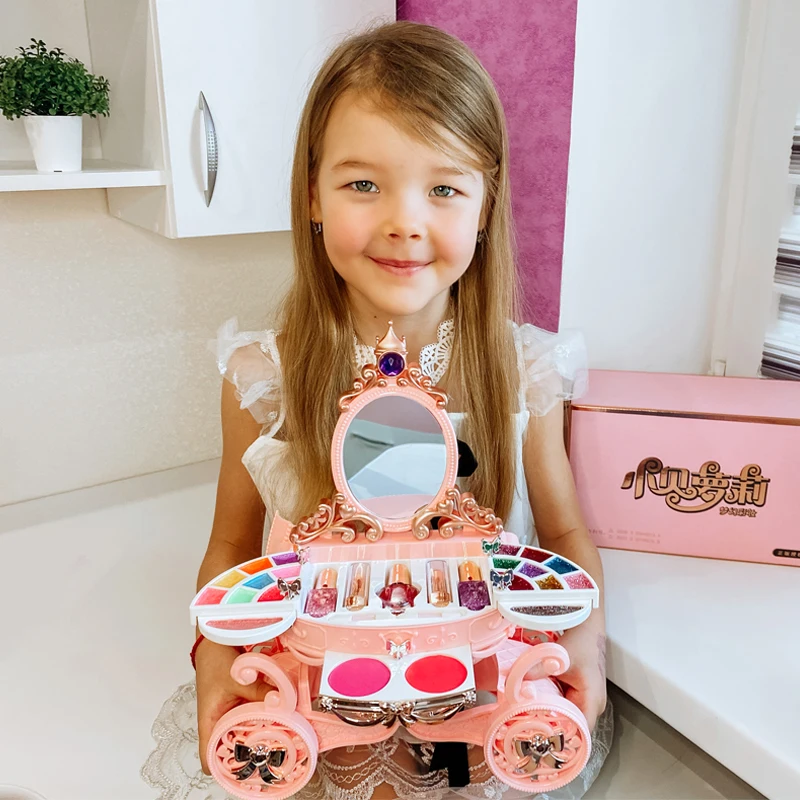 Parental Perspectives on Kids Make-up
Parental Perspectives on Kids Make-upParents often strive to balance their children’s creativity with appropriate guidelines regarding makeup use. Establishing clear rules about the types of products allowed, the amount of makeup used, and the occasions for makeup application helps maintain this balance. For example, limiting the use of bold colors or ensuring that makeup is age-appropriate can prevent children from adopting styles that are too mature. By setting these boundaries, parents support their children’s creative interests while ensuring that makeup use remains suitable for their age.
Some parents may have concerns or misconceptions about kids using makeup, such as fears of promoting vanity or unhealthy body image. However, when approached thoughtfully, makeup can be a positive tool for self-expression and creativity. Open communication between parents and children about the reasons for using makeup and the importance of inner beauty can help alleviate these concerns. Additionally, emphasizing the playful and artistic aspects of makeup can shift the focus away from superficial appearances, reinforcing its role as a form of creative expression rather than a measure of worth.
Encouraging responsible makeup use is essential for parents navigating the kids makeup trend. Teaching children about the importance of using makeup responsibly, such as avoiding sharing products to prevent the spread of germs and understanding the necessity of proper removal, fosters responsible habits. Additionally, educating children about the significance of makeup-free days and the value of natural beauty promotes a balanced and healthy approach to makeup. By instilling these values, parents can ensure that makeup remains a positive and enriching activity for their children.
Yes, when using products specifically designed for children, makeup can be safe. Always choose non-toxic, hypoallergenic products and supervise application to ensure safety.
There is no set age, but many children begin experimenting with makeup around ages 5 to 7. It is important to consider the child’s maturity and interest levels.
Parents should set boundaries on the amount and types of makeup used. Encouraging regular breaks and emphasizing makeup-free days helps maintain a healthy relationship with makeup.
Simple and washable products like lip glosses, tinted balms, and basic eyeshadows are suitable. Avoid heavy or long-lasting products to ensure easy removal and minimize potential risks.
Yes, when used appropriately, makeup can boost a child’s self-esteem by allowing them to express their creativity and feel good about their appearance.
Parents can introduce makeup by starting with basic, age-appropriate products and creating a fun, engaging environment. Guiding children through the application process and encouraging imaginative play also helps.
Parents should avoid using makeup products that are not specifically designed for children, including those with harsh chemicals or long-lasting formulas. Additionally, preventing the use of makeup in inappropriate settings, such as school, ensures that makeup remains a safe and enjoyable activity.
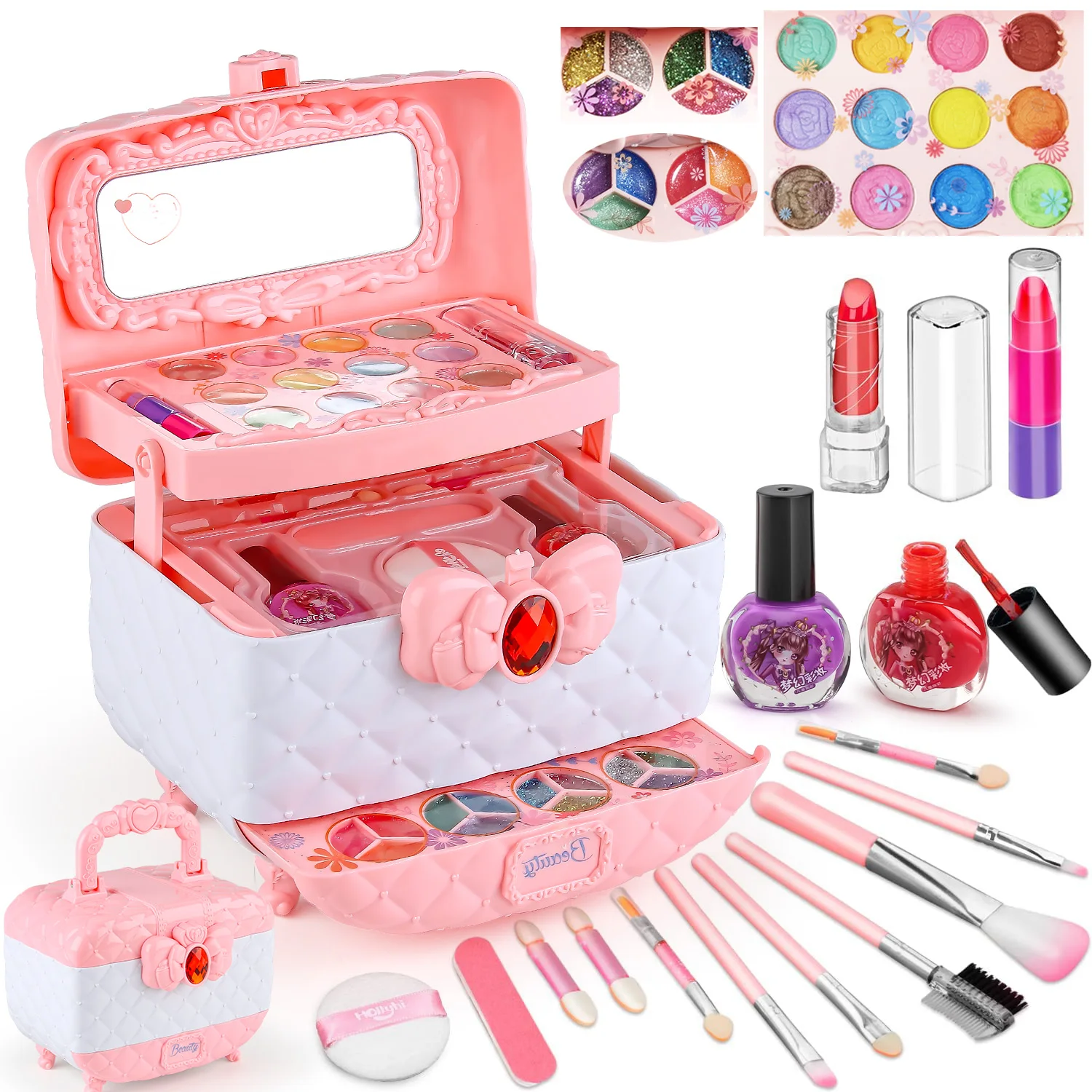 Expanding the Horizons of Kids Make-up
Expanding the Horizons of Kids Make-upBeyond creativity and self-expression, kids makeup can incorporate educational elements that teach children about art, color theory, and design. Parents can use makeup sessions as opportunities to discuss the basics of color mixing, the importance of symmetry, and the principles of design. This educational approach transforms makeup application into a learning experience, enhancing children’s cognitive skills while they engage in a fun activity.
Promoting inclusivity and diversity is another important aspect of kids makeup. Encouraging children to explore a variety of looks inspired by different cultures and backgrounds fosters an appreciation for diversity. This inclusive approach helps children understand and celebrate differences, promoting empathy and respect for others. Additionally, it broadens their creative horizons, allowing them to experiment with a wide range of styles and influences.
Leveraging technology and digital tools can enhance the kids makeup experience. Interactive apps and online tutorials designed for children can guide them through makeup application in a fun and educational way. These digital resources provide step-by-step instructions and creative ideas, making makeup application more accessible and engaging. Additionally, virtual try-on features allow children to experiment with different looks without the need for physical products, providing a safe and innovative way to explore makeup.
Hosting makeup parties and workshops is an excellent way to make kids makeup a social and collaborative activity. Organizing themed makeup parties allows children to dress up and create coordinated looks, fostering teamwork and friendship. Workshops led by professionals can provide children with expert guidance and inspiration, enhancing their skills and creativity. These events create memorable experiences and encourage children to share their passion for makeup with their peers.
Educational institutions can play a role in fostering creativity by integrating makeup arts into school curricula. By including makeup application as part of art or creative expression classes, schools provide children with structured opportunities to explore their artistic talents. This integration not only enhances students’ creative skills but also promotes confidence and self-expression within an educational setting. Additionally, it normalizes makeup as a form of artistic expression, reducing stigma and encouraging inclusivity.
Schools can also encourage extracurricular activities related to makeup arts, such as drama clubs or art workshops. These activities provide children with additional platforms to express themselves creatively and develop their makeup skills in a supportive environment. Participation in such clubs fosters collaboration, boosts confidence, and allows children to showcase their talents in performances or exhibitions. This holistic approach to education ensures that children receive a well-rounded experience that nurtures both their academic and creative abilities.
While kids makeup offers numerous benefits, it is essential to address potential challenges such as peer pressure and social expectations. Children may feel pressured to conform to certain trends or styles to fit in with their peers. Parents and educators should encourage children to embrace their unique styles and make choices that reflect their true selves. Promoting individuality and self-acceptance helps children resist negative peer pressure and develop a strong sense of self-worth.
In the digital age, children are exposed to a vast array of makeup influences online. Navigating this landscape can be challenging, as children may encounter unrealistic beauty standards or inappropriate content. Parents should actively monitor their children’s online activities, guiding them towards positive and age-appropriate makeup content. Teaching children to critically evaluate the content they encounter online fosters media literacy and helps them make informed decisions about their makeup use.
Ensuring accessibility and inclusivity in kids makeup is crucial for fostering an environment where all children feel welcome and represented. Parents and educators should promote makeup styles that cater to diverse skin tones, facial features, and cultural backgrounds. Providing a wide range of products that accommodate different needs ensures that every child can participate and feel included in makeup activities. This inclusive approach celebrates diversity and empowers all children to express themselves creatively.
Engaging in kids makeup can lay the foundation for lifelong artistic skills. The creative processes involved in makeup application, such as color selection, blending, and design, translate into broader artistic competencies. Children who develop these skills through makeup are better equipped to pursue various artistic endeavors in the future, whether in visual arts, performance, or other creative fields. This early exposure to art fosters a lifelong appreciation for creativity and self-expression.
Kids makeup also contributes to the development of emotional intelligence. As children express themselves through makeup, they learn to recognize and articulate their emotions. This process enhances their ability to understand their feelings and those of others, fostering empathy and emotional awareness. Additionally, the confidence gained from creative expression positively impacts their social interactions and emotional resilience, equipping them with essential life skills.
The meticulous nature of makeup application encourages mindfulness and focus in children. Concentrating on creating a specific look requires attention to detail and patience, skills that are valuable in many areas of life. Practicing these skills through makeup can help children improve their concentration, manage their time effectively, and develop a sense of accomplishment. These attributes contribute to their overall personal growth and academic success.
 Conclusion
ConclusionIn conclusion, kids makeup serves as a valuable tool for fostering creativity, self-expression, and confidence among young individuals. With thoughtful selection of safe products and appropriate supervision, makeup can be a fun and empowering experience for children. Parents play a crucial role in guiding their children through this journey, ensuring a balance between creativity and safety. As the trend of kids makeup continues to grow, it opens up new avenues for children to explore their identities, develop their artistic talents, and build essential life skills. Embracing kids makeup responsibly can lead to positive outcomes for both children and their families, creating a nurturing environment where creativity and self-expression thrive.